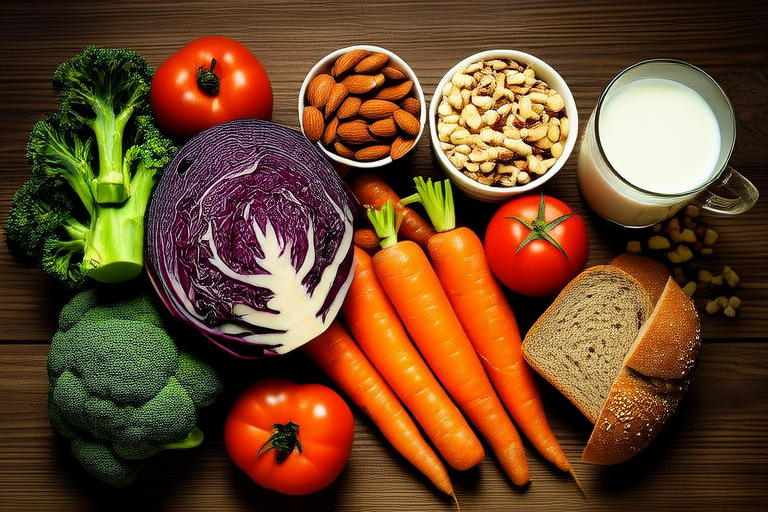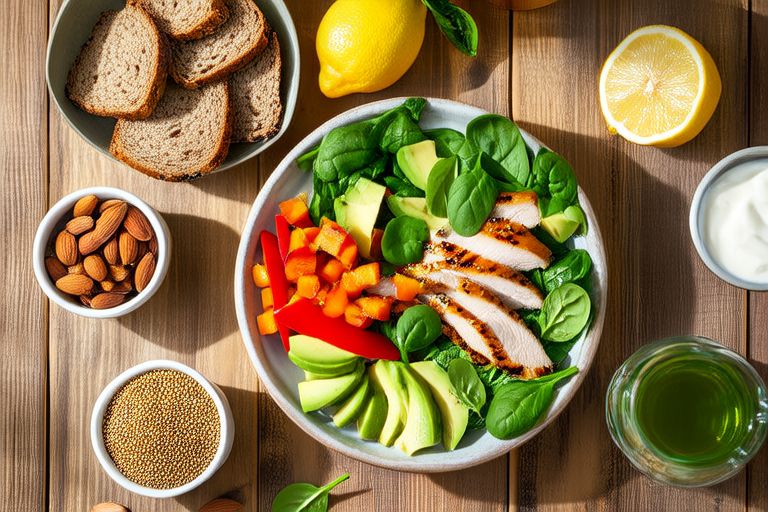10 Essential Guidelines for a Balanced and Healthy Diet
A balanced and healthy diet is the cornerstone of overall well-being, supporting physical health, mental clarity, and long-term vitality. With countless dietary trends and conflicting advice, it can be challenging to identify what truly works. This article outlines 10 essential guidelines for maintaining a nutritious and sustainable diet, each accompanied by actionable tips to help you make informed choices.
1. Prioritize Whole, Unprocessed Foods
Whole foods are minimally processed and retain their natural nutrients, making them superior to highly refined alternatives. Examples include fruits, vegetables, whole grains, nuts, seeds, and lean proteins. These foods provide essential vitamins, minerals, fiber, and antioxidants that support your body’s functions.
Actionable Tips:
- Fill half your plate with vegetables and fruits at every meal.
- Choose whole grains like brown rice, quinoa, and oats over white bread or pasta.
- Opt for fresh or frozen produce instead of canned options with added sugars or sodium.
2. Control Portion Sizes
Even healthy foods can contribute to weight gain if consumed in excess. Understanding portion sizes helps you enjoy a variety of foods without overeating. This practice also prevents feelings of deprivation, which can lead to unhealthy bingeing.
Actionable Tips:
- Use smaller plates and bowls to naturally limit portions.
- Measure servings of snacks like nuts or cheese to avoid mindless eating.
- Listen to your body’s hunger and fullness cues instead of eating out of habit.
3. Include a Variety of Food Groups
Diversity in your diet ensures you receive a wide range of nutrients. Each food group offers unique benefits, from protein-rich foods that support muscle repair to dairy products that strengthen bones.
Actionable Tips:
- Incorporate all major food groups: fruits, vegetables, grains, proteins, and dairy or fortified alternatives.
- Experiment with new recipes to introduce unfamiliar ingredients into your meals.
- Rotate your protein sources weekly, including fish, poultry, beans, tofu, and eggs.
4. Limit Added Sugars and Refined Carbohydrates
Excessive consumption of added sugars and refined carbs can lead to energy spikes and crashes, weight gain, and an increased risk of chronic diseases. These empty-calorie foods lack nutritional value and should be consumed sparingly.
Actionable Tips:
- Read nutrition labels to identify hidden sugars in packaged foods.
- Replace sugary beverages with water, herbal teas, or sparkling water.
- Satisfy sweet cravings with naturally sweet options like fruit or dark chocolate (70% cocoa or higher).
5. Stay Hydrated
Water plays a critical role in digestion, nutrient absorption, temperature regulation, and waste elimination. Dehydration can cause fatigue, headaches, and impaired cognitive function, making hydration a non-negotiable aspect of a healthy diet.
Actionable Tips:
- Aim for at least 8 cups (64 ounces) of water daily, adjusting for activity level and climate.
- Carry a reusable water bottle to encourage consistent intake throughout the day.
- Start your morning with a glass of water to kickstart hydration after a night’s rest.
6. Incorporate Healthy Fats
Not all fats are created equal. Healthy fats, such as those found in avocados, nuts, seeds, olive oil, and fatty fish, are vital for brain health, hormone production, and reducing inflammation. Avoid trans fats and limit saturated fats for optimal health.
Actionable Tips:
- Add slices of avocado to salads or toast for a creamy texture and dose of healthy fats.
- Use olive oil as your primary cooking oil for sautéing or dressing salads.
- Include fatty fish like salmon or mackerel in your diet at least twice a week.
7. Eat Mindfully
Mindful eating involves paying attention to what and how you eat, fostering a deeper connection with your food. This practice reduces overeating, improves digestion, and enhances satisfaction from meals.
Actionable Tips:
- Turn off distractions like TV or phones during meals to focus on your food.
- Chew slowly and savor each bite to recognize when you’re comfortably full.
- Pause midway through your meal to assess your hunger levels before continuing.
8. Plan and Prepare Meals Ahead of Time
Meal planning and preparation save time, reduce stress, and minimize the temptation to choose unhealthy convenience foods. Having nutritious meals ready ensures you stay on track with your dietary goals.
Actionable Tips:
- Set aside one day a week to plan menus and prep ingredients like chopping vegetables or marinating proteins.
- Store pre-portioned snacks like trail mix or yogurt cups for easy access.
- Keep a well-stocked pantry with staples like canned beans, whole grains, and spices for quick meals.
9. Practice Moderation, Not Deprivation
A sustainable diet allows room for occasional indulgences without guilt. Completely eliminating favorite treats often leads to cravings and eventual overconsumption. Instead, focus on balance and moderation.
Actionable Tips:
- Enjoy small portions of desserts or snacks as part of a balanced meal plan.
- Share larger portions of indulgent foods with friends or family to reduce intake.
- Focus on the quality of your overall diet rather than obsessing over individual foods.
10. Listen to Your Body’s Unique Needs
Every individual has different nutritional requirements based on age, gender, activity level, and health conditions. Pay attention to how specific foods affect your energy levels, mood, and digestion to tailor your diet accordingly.
Actionable Tips:
- Keep a food journal to track patterns between what you eat and how you feel.
- Consult a healthcare provider or registered dietitian for personalized guidance.
- Adjust your diet seasonally to align with available produce and changing energy needs.
By following these 10 essential guidelines, you can create a balanced and healthy diet that supports your physical and mental well-being. Remember, consistency and mindfulness are key to long-term success. Start small, make gradual changes, and celebrate progress along the way.










